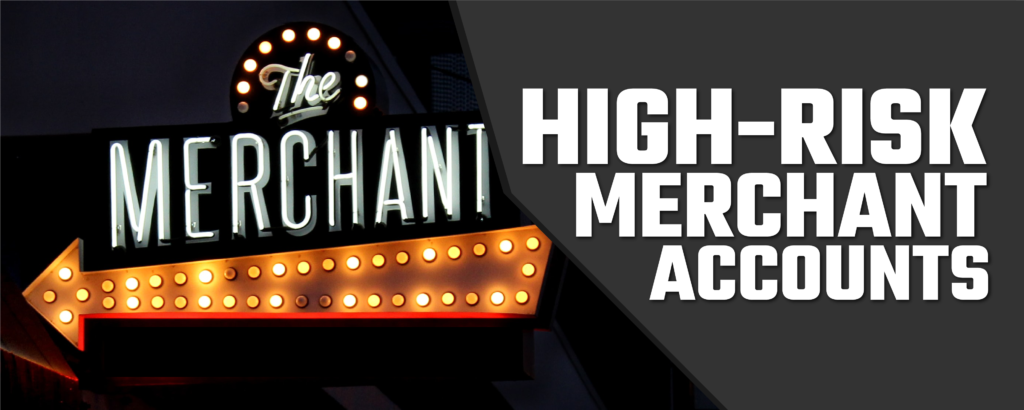Many things are needed to enable businesses to gain and retain customers. Products and services that customers want, for example, as well as a high level of quality, attentive follow-up after-sales, reliability, reasonable prices, and such. One of the most important elements—one that is often overlooked—is the implementation of measures to make it easy for customers to pay. One way to do this is to offer as many ways to pay as possible. Preferences for payment methods (e.g., debit cards/cash vs. credit cards) differ from person to person and change over time as new technology is introduced or circumstances otherwise change. It may also differ by industry or location. Regardless, the ability to accept credit card payments (whether in person or online) is a must for most businesses today. For online payments , in particular, it’s necessary to provide a gateway to merchant accounts for high-risk businesses.
Merchant Accounts
One of the main steps in creating a business, whether large or small, is deciding what forms of payment you will accept and what specific process will be used for payments. Ordinarily, you would open a merchant account for your business. What is a merchant account ? It is a type of bank account that enables businesses to accept credit and debit card payments. This applies whether payments are made with the physical card in person, over the telephone, or online.
A card transaction involves three parties: the cardholder (usually the customer), the business or merchant, and the payment processor. Card transactions usually occur quickly, especially as Internet connection speeds continue to increase. Data is transmitted between the three parties at high speed. This is a benefit to both the customer and the business. For example, customers are able to complete purchases quickly, so they are able to begin using the purchased products or services quickly. Businesses are able to receive payments quickly, with payments usually going directly into the business’ bank account. Businesses are also able to avoid the risk of having cash in a physical store, making it susceptible to being lost, stolen, or miscounted.
Areas of High-Risk Business
Merchants usually go to a traditional bank to apply for a business account. Sometimes, the bank will deny the application. This most often occurs in the case of high-risk businesses. There are two general categories of high-risk businesses . One is the “Red Zone,” which refers to businesses that are considered risky independently of their business history. Some of the factors that can put a business in the “Red Zone” are being in an industry that has a high risk of chargebacks , dealing only with services or intangible products, dealing in high-volume sales , failing to comply with industry safety/security standards and regulations, and operating “adult-oriented” services (e.g., pornography, gambling, tobacco, weapons, alcohol).
The other is the “Grey Zone,” which refers to businesses that are considered risky because of their actual business history. Factors that can put a business in the “Grey Zone” include having a bad business credit score or no score at all, having a high chargeback rate, being an international merchant, and accepting/dealing with foreign currency.
Some merchants who apply for a merchant account at a traditional bank are surprised to find out that they are considered to be “high-risk.” For example, online technical support is considered to be high-risk because of the prevalence of fraud in the industry. Traditional banks are reluctant to get involved with such risks, which are likely to continue for the foreseeable future. Unfortunately, the fact that your business is completely honest and trustworthy is unlikely to counteract the negative perception of the industry.
High-Risk Merchant Accounts
Fortunately, being considered high-risk does not necessarily mean that the business has less potential for success or that it’s impossible for the business to be stable and secure. It also does not mean that the business cannot open a merchant account merely because it cannot open one in a traditional bank. a variety of companies offer payment processing for high-risk businesses. Some payment processors even specialize in high-risk businesses .
Selecting the right payment processor for your high-risk merchant account is an important decision. Some of the things you should look for in a payment processor are listed below.
Screening Potential Payment Processors
When screening potential payment processors, be sure to ask questions and get clarification of anything you don’t understand. Pay attention to gaining a mutual understanding of expectations, requirements, and the details of services so that it can be an effective partnership . If possible, find a payment processor that specializes in high-risk businesses. It is also important to find a payment processor that has a wide range of technological tools, a proven record of compliance with laws, regulations, and industry standards, and a secure payment system and gateway.
Utilizing a good payment processor will enable you to focus on building your business since the payment processor will be handling security. Your customers will have a better experience making payments, and, ultimately, you should be able to save money and focus on increasing revenue.





